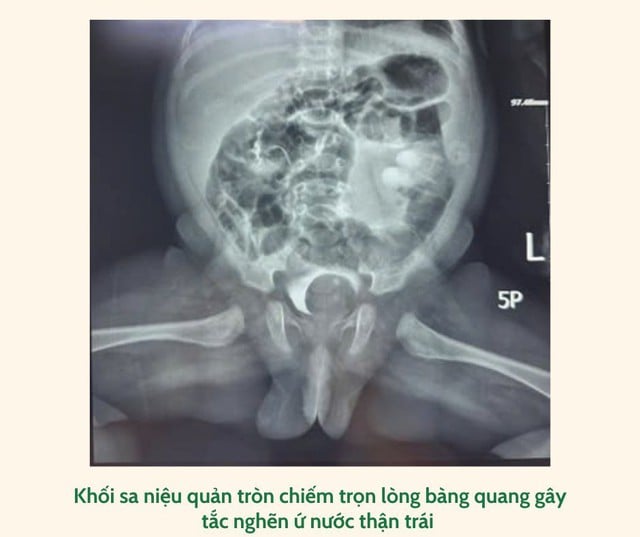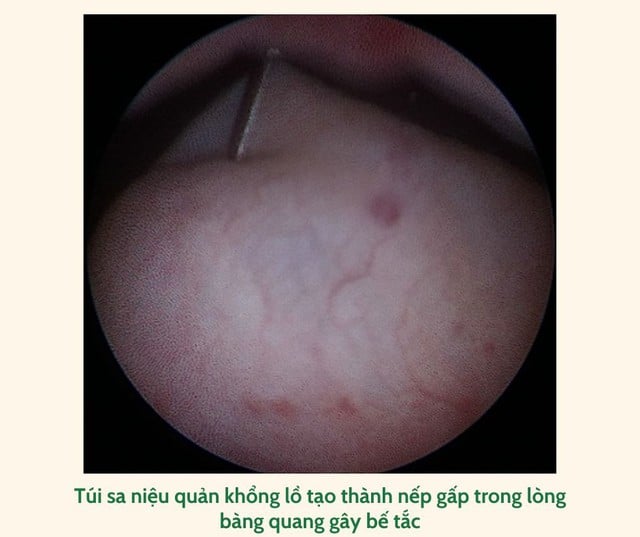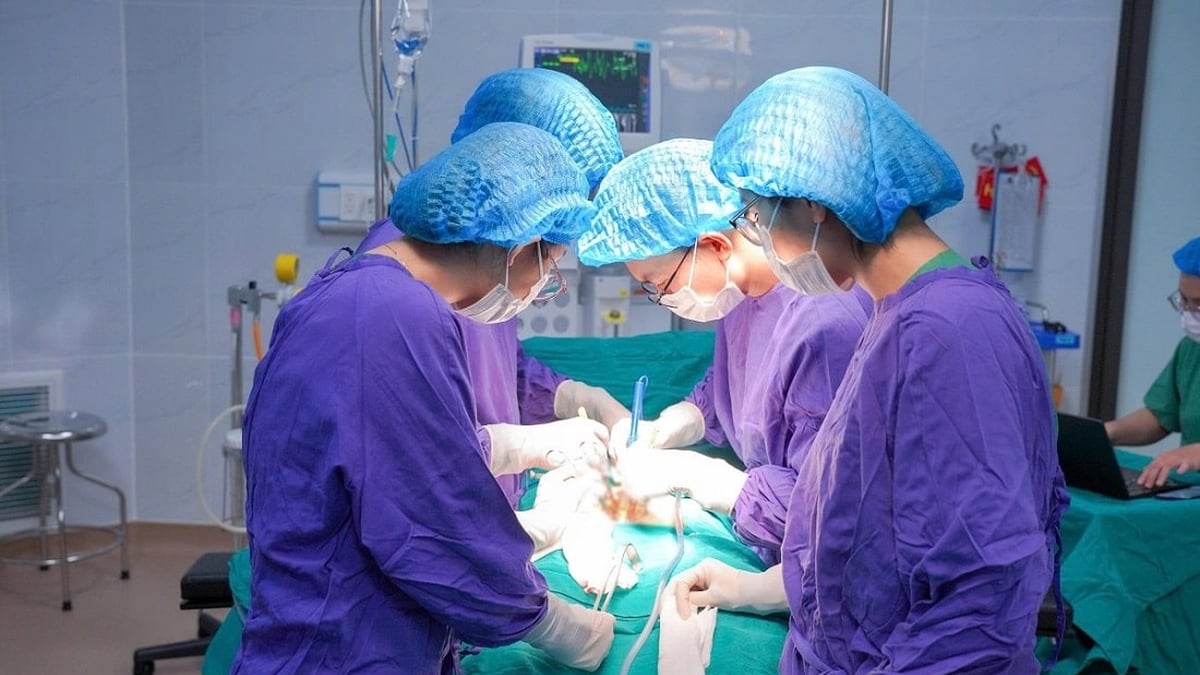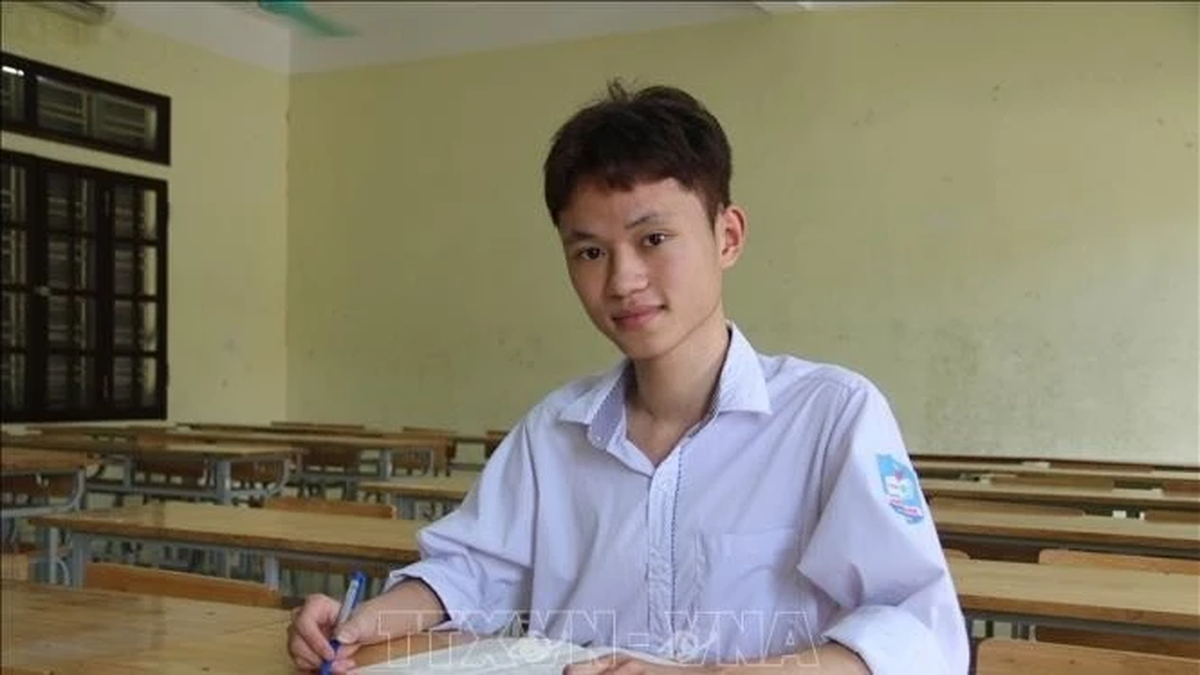GĐXH - Doctors discovered that the child had a congenital urinary system defect, double kidney and ureter causing hydronephrosis, and in particular, the child had a giant ureteral prolapse that occupied almost the entire bladder.
According to information from Dr. Pham Ngoc Thach - Deputy Director of Children's Hospital 2, recently, doctors here received and treated a 1-month-old boy, living in Gia Lai province, with a congenital urinary system defect, double kidney and ureter causing hydronephrosis. In particular, the patient had a giant ureteral prolapse that occupied almost the entire bladder.

Photo: BVCC
During pregnancy, the patient was found to have urinary tract abnormalities in the renal area, with hydronephrosis suspected of being a double kidney.
After birth, the baby had difficulty urinating, urinating normally then intermittently, sometimes the urine was cloudy with high fever and refused to breastfeed. The baby was admitted to Children's Hospital 2 with a high urinary tract infection.
Here, the child was examined and screened for congenital urinary system abnormalities, double kidney and ureter causing hydronephrosis, especially the child had a giant ureteral prolapse that occupied almost the entire bladder. This was the cause of kidney and ureter obstruction, hydronephrosis, urinary tract infection as well as difficulty in the child's urination.
The baby was treated by a urology team led by Dr. Pham Ngoc Thach for cystourethroscopy to treat ureteral obstruction caused by a prolapsed sac.

Photo: BVCC
After 5 days of surgery, the infection improved significantly, kidney function was normal. The patient was discharged 5 days after surgery, breastfeeding well, no surgical scar.
The doctor said that Children's Hospital 2 receives about 12-15 cases of ureteral cysts each year. Ureteral cysts are often accompanied by a congenital abnormality of double kidney and ureter. The disease manifests as a large dilation of the cyst wall of the ureter inserted into the bladder. If ureteral cysts are not detected and treated in the long term, they will cause complications in the kidneys and urinary system such as recurrent urinary tract infections, ureteral stones, and renal fibrosis leading to impaired kidney function.
Source: https://giadinh.suckhoedoisong.vn/be-1-thang-tuoi-may-man-thoat-khoi-khoi-sa-nieu-quan-chiem-gan-tron-long-bang-quang-172250124054843973.htm




















































![[Maritime News] More than 80% of global container shipping capacity is in the hands of MSC and major shipping alliances](https://vphoto.vietnam.vn/thumb/402x226/vietnam/resource/IMAGE/2025/7/16/6b4d586c984b4cbf8c5680352b9eaeb0)













































Comment (0)